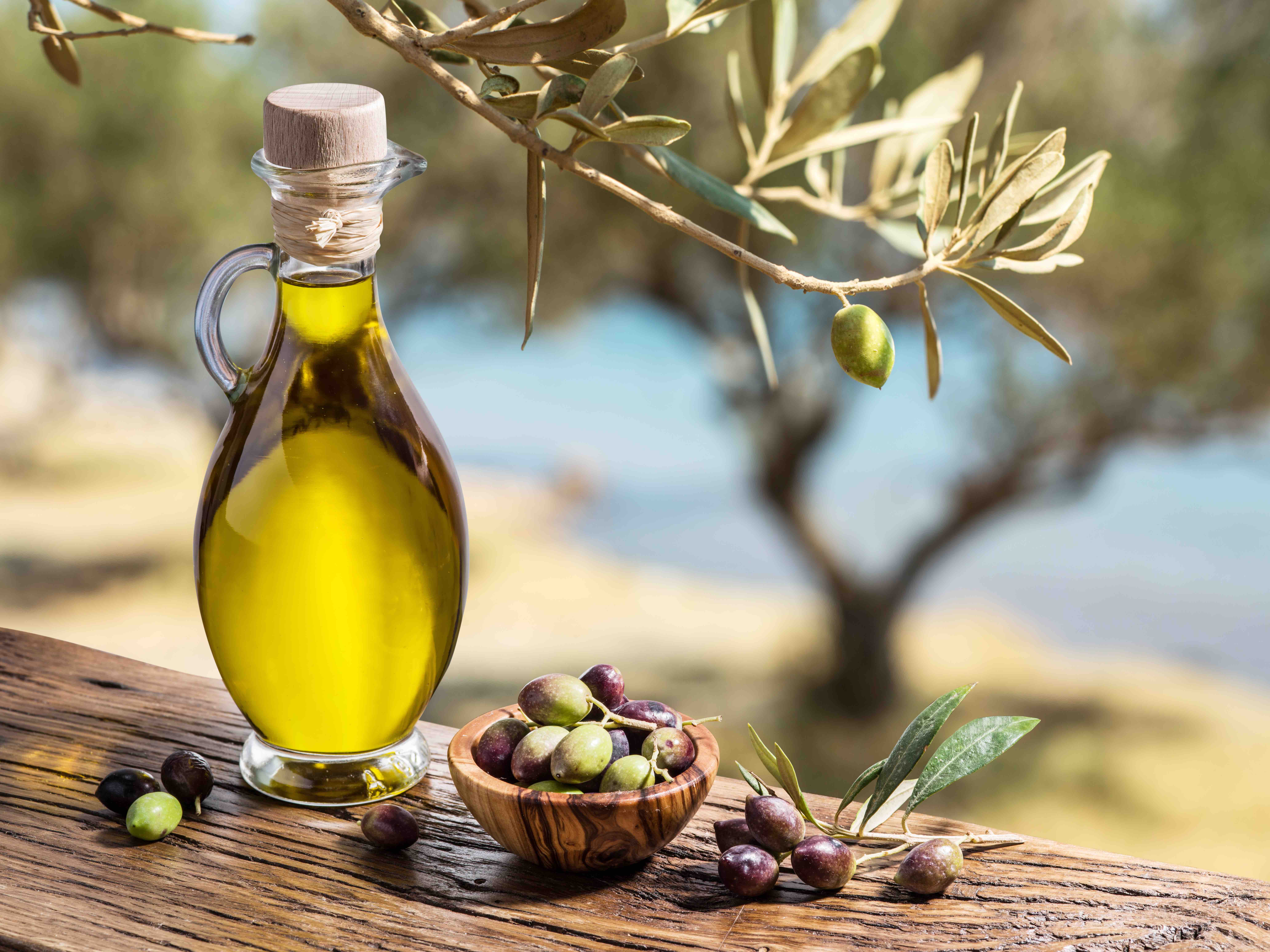
Essential oils can add fragrance to your home and aroma to your relaxing bubble bath. They can also soothe strained muscles and dry skin or scalp infections. Essential oils also have beneficial properties for skin and hair health. They have been used for millennia for nourishing and sustaining hair and skin and may be safely used when following the directions and guidance of a reference book.
Olive oil can be mixed into your bath water, or with other essential oils, and applied to the hair to soften, nourish, and heal the scalp. As with any oils, it is best to test it on a small portion of your skin to test for allergies or other adverse effects.
Extra virgin olive oil is especially rich in Vitamin E and monounsaturated fatty acids that play an important role in hair growth by fighting inflammation and free radicals. Take ½ cup olive oil, mix in 5 drops of essential oils and massage into the scalp. Leave it in for 30-45 minutes, then rinse with a mild herbal shampoo.
Coconut oil is one of the most beneficial oils for the hair because it penetrates the hair shaft completely, providing it with lauric acid. It also acts as an anti-microbial, so it works well in the treatment of dandruff, seborrheic dermatitis, and other scalp and skin infections. Massage a few tablespoons of warm coconut oil to the scalp daily to prevent dandruff. Once a week apply a greater quantity to the scalp and leave it in for one hour.
Sweet Almond oil is mild and can be used on sensitive or baby skin. Its nutritive properties come from high levels of vitamin E, potassium, zinc, and fatty acids. It has great benefits for eczema or dry skin. Applying almond oil overnight to the affected area will be most beneficial. If you have nut allergies, it would be best to avoid almond oil.
The cedar is often mentioned in the Bible as symbolizing a source of protection, wisdom, and abundance. The components that make the Cedar Wood Essential oil so beneficial and aromatic are alpha and beta-cedrene, cedrol, and Thujopsene. This oil has been used in shampoos, soaps, and lotions, but it is also used as a mosquito repellent and natural moth repellents. Cedar has many skin and scalp benefits as well. Its astringent and antiseptic properties help those who overproduce sebum. It can help reduce infection and inflammation as well. Blended with a carrier oil such as olive, coconut, jojoba, or almond oil, along with other essential oils such as eucalyptus, lavender, rosemary, thyme, it can help stimulate hair growth. Gently massage the oil mixture into the scalp once or twice per day in the affected area. In one study in Scotland, 44 percent of women noted new hair growth with essential oils versus 15 percent who only used the carrier oil.
Lavender oil has been historically used for its antiseptic and mental health benefits. Some preliminary scientific results indicate that lavender oil, combined with oils from other herbs, may help with hair loss from a condition called alopecia areata. Mix Lavender oil with coconut oil and apply to the scalp daily.
There are other anti-microbial, antiviral, and anti-parasitic essential oils which may help with scalp or skin infections. Some of them are oregano, rosemary peppermint, thyme and citrus oils.
Using these natural oils found in God’s creation can be powerful and effective alternatives to keep hair healthy and happy while at the same time providing other benefits to your overall health!
Before using any oils, your skin condition should be assessed medically for potential significance. Medical advice should always be acquired as to the safety of treatment and potential side effects. If using essential oil is deemed appropriate, one should test the essential oil on a small patch of skin before use, to test for possible contact allergies.